
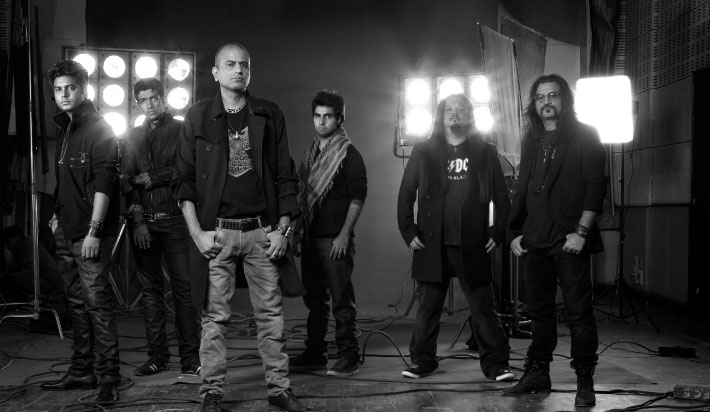
Parikrama fill up stadiums. They fill up open air theatres in every single college they perform at, they fill up pubs, they fill up open grounds. Thousands of dedicated young fans across the country, a packed touring schedule, stints at international festivals – the Download Festival in ’07 chief among them – and tours in India and abroad. 23 years later, Parikrama are arguably one of the most iconic rock ‘n’ roll bands in India, and probably one of the most active. They never disappoint – every single gig of theirs is usually packed to the rafters, with not a stray note out of place, not a second where the energy dips. They perform with an infectious liveliness and spirit that often translates to shows fans would term ‘memorable’.
And yet, there lies, lurking beneath the fanfare and the flourish, an underbelly of hate, resentment, criticism, ridicule even. It’s safe to say that Parikrama are not darlings of the critics, however limited the influence of these critics may be. The band first made its name in the ’90s, at a time when playing original music was practically an anomaly. It’s been written about enough times – they’ve often been labeled the poster-boys of the covers brigade that rock music in India took so long to move on from. Unfair or not, criticism has been hurled at them aplenty, especially by people who’ve been part of the music circuit for a while. They’ve been the punchline to a long-running joke, a punchline that, admittedly, this writer has also used occasionally in the past. Admittedly, I’m not exactly a huge fan of the band, more for the kind of music they play, which doesn’t connect with me – the big, stadium rock ‘n’ roll sound, with the parallel guitar and violin solos and the soaring vocal notes and melodies is not my thing. But that’s an aside. Beyond my personal likes and dislikes, what struck me was how Parikrama have never really bothered, one way or another, to respond to the so-called critics. How they’ve been relentless in their rock ‘n’ roll journey, and, seemingly, never really given much of a shit what skeptics have had to say about their band. In some twisted way, it seems like those guys are genuinely only in it for the music, doesn’t it? Street cred or fawning music ‘insiders’ have never really been on their agenda. They did play covers a lot, but they were also one of the first bands in India to release their own music online. No other band in the country had a website when they did (’97), and they’ve always engaged with their fans actively, encouraging them to bootleg their shows, among other things. They’ve mentored and managed a host of not just independent bands but artists and musicians who’ve chosen music as a career path.
But a lot of those things are forgotten since they go against the ‘narrative’. Then again, the purpose of this isn’t to debate the merits of a lesser evil or pass judgement; instead, it’s to provide the band with a space, a platform to speak their mind.
So I gave Subir Malik, the founding member, keyboard player, and manager of Parikrama, and also the main man behind Parikrama Inc, a ring, to see if he would be interested in responding to some of the accusations and criticism leveled at Parikrama. He’s a busy man – we first discussed the story a few months ago, where your writer put his cards on the table and told him that he wasn’t a big fan of Parikrama. He didn’t seem to mind one bit. The story interested him. But he barely had time in between tours. So I pursued him, apologizing in advance for the confrontational nature of my questions. He was understanding enough, and after a good four or five months, he finally found the time to respond to my questions. He admits to a few things, doesn’t agree with a few others, tells me how Parikrama have been all about playing original music over the past few years, and, most of all, reminds me that it’s about the music and the fans, and no one else. Below is a transcript of the interview with Subir Malik, wherein he tackles head on many of the jibes made at Parikrama in and outside gigs and all those other places where people talk about them, often disparagingly.
Akhil Sood: Congratulations on completing 20 years, especially in a scene where most bands fall by the wayside after a handful of years. How does it feel to have been active for so long?
Subir Malik: Absolutely brilliant, buddy. Going to be 23 this June; it’s been great fun and that’s what this band is all about.
AS: How did you find the drive to keep going on even when long-time members (Chintan and Dilip) parted ways with the band in the past?
SM: The band is bigger than an individual, that’s it. Parikrama is bigger than me or Nitin or Sonam or anyone else, and that’s it. Saying that, the contribution that Chintan and Dilip had for Parikrama cannot be forgotten ever; I can safely say that Parikrama would not be where it is without the contribution of not only them, but each and every member that ever joined the band.
Q: Parikrama has often been criticized for playing set lists filled with covers, with accusations of selling out made frequently. How would you respond to that?
SM: Guys, we have a simple policy: each person to their own, live and let live, do what you "feel" and like to do, end of story. Moreover, if you would have seen the band in the last many years, we do much more of our original stuff now, than covers. Even in college gigs now, out of, let’s say, 15 tracks, you will have maximum one cover or two thrown in, that’s it.
But let me tell you, buddy, we have absolutely no qualms in playing covers, if need be.
There is no better high than the audience appreciating your originals, but a cover here or there, we really have no problem.
Selling out, wow, that’s a big word!
AS: You guys have always maintained a dignified silence against any potshots that people might take against you. Do you feel tempted to respond to criticism?
SM: We have always maintained that we respond back with our music. Criticism actually makes us stronger and work harder. What’s the point of going on the net and starting a war; there is no point, buddy. It’s very simple: You like us, thank you; you do not like us, still a thank you, that’s it.
AS: Do you feel that Iron Maiden inviting you to play at the Download festival was a vindication and a victory for Parikrama against your critics?
SM: You know, amazingly, we always said it was a victory for rock music in India, and for Indian bands. Our thinking is that today we made it to Download, it will open up things for other Indian bands and they will be there next.
Check out the documentary on BBC, shot at Download; most of the people there did not even know that rock existed in this country before, so we were very, very happy to represent Indian rock to the world.
Regarding critics, it is up to them to think about it.
AS: Another criticism often made is that you guys played a set-list with a lot of original songs only when you were invited to open for Iron Maiden in Bangalore. Before that, the original songs were not played that frequently. How would you respond to that?
SM: That’s absolutely true, we accept it totally.
But we also did many original sets for GIR, etc. before that, but the Maiden gig was the biggest and things changed after that.
Now, we do almost all original sets, or as said maybe a cover or two thrown in, if the college kids really demand for it or whatever the circumstance would be.
AS: Do you think that people who make accusations against you often forget all the good work that Parikrama, and you especially, have done for the scene? E.g., managing and supporting dozens of young artists and bands and handing opportunities and developing a structure and platform where young musicians can survive in the industry?
SM: Buddy, it really does not matter, does it? Do you really think that the people who say all this are so important to us? No way! They can keep talking, keep accusing, keep criticizing, if that’s what gets them peace and makes them happy. No problem.
Most important to us are our fans. If things were so bad, why would Parikrama still do so many gigs every year, and very well attended gigs mostly, and the biggest of them all? You cannot fool people, buddy, and these very people attend our gigs, and they are not fools. We live for our fans, and not the so-called critics, period.
AS: Why has Parikrama gone the covers way? The band has an accomplished line-up of individual musicians who are all very talented and have written exceptional music in the past. So what is the reasoning behind choosing to play shows where the majority of the songs are covers?
SM: Mate, you guys have not been to our concerts lately; this question definitely was relevant, say, 10 years ago or so (regarding covers). It’s really not like that anymore.
AS: What are your reasons behind choosing not to release an album despite having been around for so many years?
SM: We released our first song for free on 28th Dec, 1995, bought parikrama.com in 1997, and as net speed improved, started giving out everything for free in 1997, which was very well against the norms of the industry way back then, and look now. Everyone is doing the same. If only an album is needed to establish a band, well, we have gone against the tide and proved things otherwise. We have, from the beginning, encouraged our fans to make bootleg copies of our songs, share them as much as possible.
Even now loads of tracks are available for free on www.facebook.com/parikrama.
AS: What are the future plans for Parikrama? Any new songs/videos/albums slated to come out?
SM: Well, we released three new tracks for the Parikrama@22 tour, and now the Parikrama@23 tour is coming up (15 cities, phase one is in June 2014). We are currently reworking our old song ‘Screaming Town’. The other new ones are ‘How Do We Decide It’, ‘Mayhem in Gm’, ‘Sweet Ass Sugar’, etc. We have also redone our first ever original (from 1991) called ‘Xerox’.
For Parikrama@22, we also picked up another old one called ‘Don’t Cut Me Down’.
AS: Is there anything you would like to say to your fans, critics, and audiences for rock music in the country?
SM: Believe in peace, trees and rock and roll, support each other, that’s the way forward, cheers!
This interview has been edited for length and clarity.
Previous Article Undying Inc. - A Decade of Destruction Undying Inc. - A Decade of Destruction
|
Next Article The Coiling Of Sounds And Escher's Knot The Coiling Of Sounds And Escher's Knot
|
The amount that (and the speed at which) Shiv Ahuja talks would make one wonder how this guy ever manages to shut up and click pictures. One look at his pictures though, and there's silence: the visuals spring to life in glorious black & white. We catch up with the 23-year-old Delhi photographer as he talks us through his process.
Aditya Varma interviews Warren Mendonsa, the brains (and pretty much everything else) behind Blackstratblues, and the guitar player for seminal act Zero.
A stunning location, some great music, some not so much, rum in the hills, shattered bass drums, and memories of staring down to look at the clouds - the first edition of the Celeste Music Festival, held at the George Everest House in Mussoorie, was a grand success. Aditya Varma was there to witness the ins and outs; below are his thoughts.
A review of Lucky 7: Stupid Ditties, an Ennui.Bomb Compilation.
Them Clones have released two new singles, 'Mediocre' and 'Speak When I'm Gone'. The band is trying to reinvent its sound, and we speak to them about introducing a new member into the mix, about the idea behind releasing singles and not EPs, and what directions they're keen on heading in.
(Photo by Naman Saraiya) Pentagram return to Delhi after what seems like forever (almost a year, to be more precise) to play at Blue Frog on September 27
Swedish metal giants Meshuggah are all set to return to India to play at the Bacardi NH7 Weekender festival. They will be performing…
A review of Ambiance de Danse by Amyt Datta.
There’s this really cool thing about us Indians. We’re fools. You can argue about it all you…
A friend popped up with a thought bubble of a question the other day. 'Best band of all-time?' closely following it up with 'Don't…
In the first half of 2012, over 20 Indian indie acts released albums (I’m excluding EPs for the purpose of simplicity and yes, convenience). While…
Some wag – may he rest in peace – once claimed that writing about music was like dancing about architecture. Very clever. He's passed…
Keshav Dhar of Skyharbor writes about Indian bands and the internet in this special column.



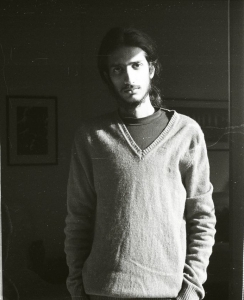
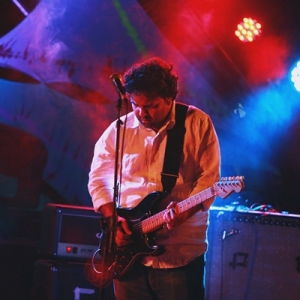
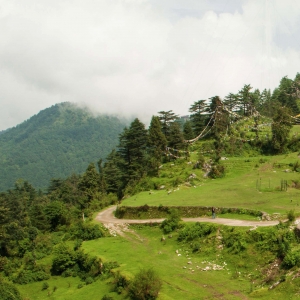
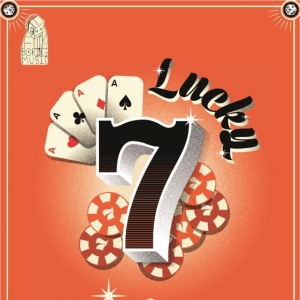
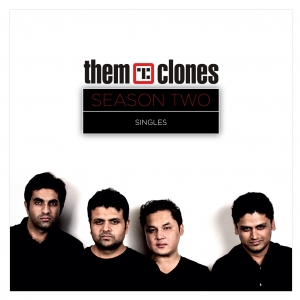
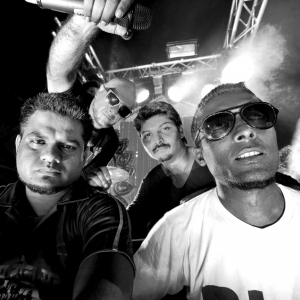
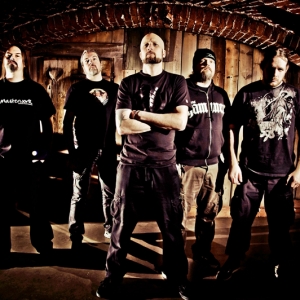
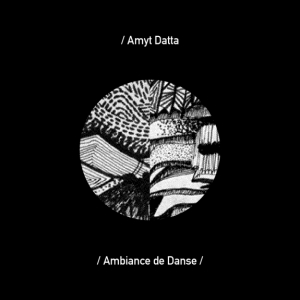
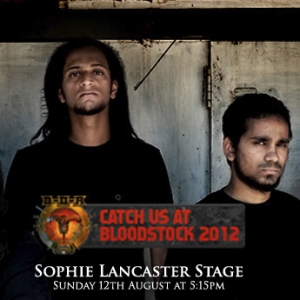

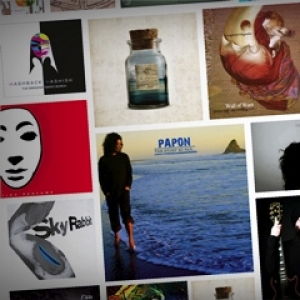
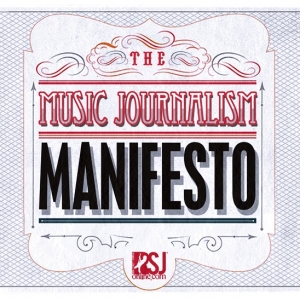

Leave a comment